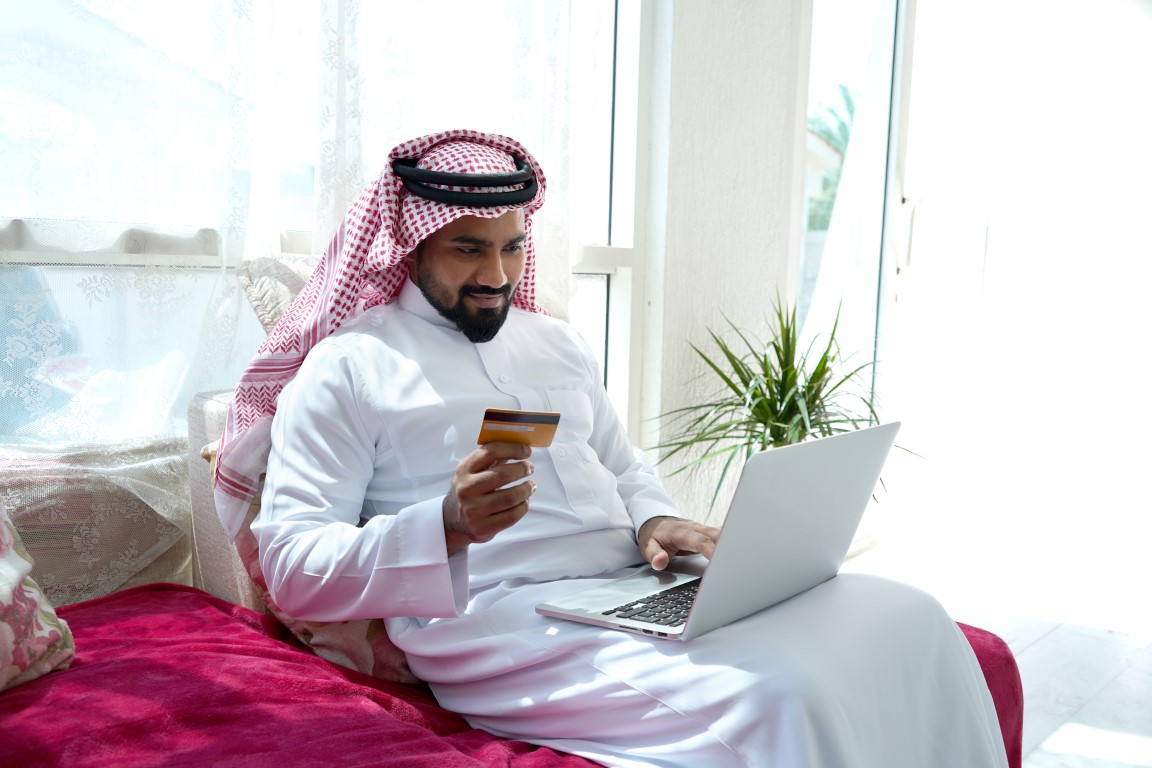Coronavirus has impacted the spending habits of Saudi Arabia’s consumers, accelerating their adoption of e-commerce and contactless payment options amidst a general increase in spending, a recent study by global management consulting firm Kearney Middle East revealed.
More than 80 percent of consumers have changed their shopping habits to adapt to the “new normal”, with those aged between 30 and 45 recording the highest change (89 percent), followed by those from ages 46 to 60 and under 30 years old, the study, the third in a series of surveys exploring consumer shopping habits since the onset of the pandemic, indicated.
Compared to last year, Saudi consumers are now more comfortable purchasing essential items (groceries and health and wellness products) online. Close to 39 percent of consumers surveyed cited Covid-19 prevention as the reason behind the uptick in e-commerce, followed by convenience (36 percent), price (17 percent) and finally, variety of products assortment (8 percent).
When it comes to non-essential (clothes, accessories) online spending, convenience ranked first with 34 percent, followed by Covid-19 prevention and variety of products, which tied at 24 percent each.
Despite the increase in e-commerce, 44 percent of the kingdom’s consumers prefer offline shopping for essential items, and 35 percent for non-essential items, particularly for products that require inspection for quality, freshness and fit.
“For Saudi consumers, convenience is driving online purchases with Covid-19 concerns becoming a secondary factor, indicating the sustenance of the online shift. However, the physical store still plays a strong role across all categories which require the customer to touch, feel and try the product,” said Adel Belcaid, partner at Kearney Middle East.
“Retailers will need to adopt a differentiated strategy to make consumers feel safe in stores; consumers are heavily indexed towards alternative shopping options like Click & Collect, kerb-side pick-up and contactless in-store experience like self-checkouts; however, this will vary across markets and its essential for stakeholders, mall property owners and retailers to monitor the evolving face of retail to ensure they stay relevant,” he continued.
Although 57 percent of the kingdom’s consumers expect the effects of the pandemic to last for the next six months, spending across the board has increased, with 60 percent of respondents indicating they have increased spending on essential items by over 25 percent. Meanwhile, 45 percent of those surveyed indicated they had increased spending on non-essential items.
 Adel Belcaid, partner at Kearney Middle East.
Adel Belcaid, partner at Kearney Middle East.
Close to 31 percent of respondents highlighted that they expect to spend more on non-essentials in the coming months, particularly on casualwear (48 percent), followed by workwear (41percent), evening wear (39 percent), active-wear (36 percent), footwear (34 percent), and bags and accessories (27 percent).
“The pandemic has fundamentally changed the way consumers view health and safety measures and efforts. As residents adapt to the new normal, hygiene and hygiene transparency have become vital. Spending is being driven by the easing of restrictions, higher awareness of health and wellbeing, and expectations to return to the office,” commented Belcaid.
A McKinsey & Company study in March indicated that the majority of consumers in the UAE and Saudi Arabia are increasingly optimistic that the economy will recover in two to three months but their overall spending remains low.
This optimism was well above the 30 percent global average as 74 percent of UAE residents and 72 percent of Saudi residents responded that they are optimistic the economy will recover and become as strong as or stronger than pre-coronavirus days.






